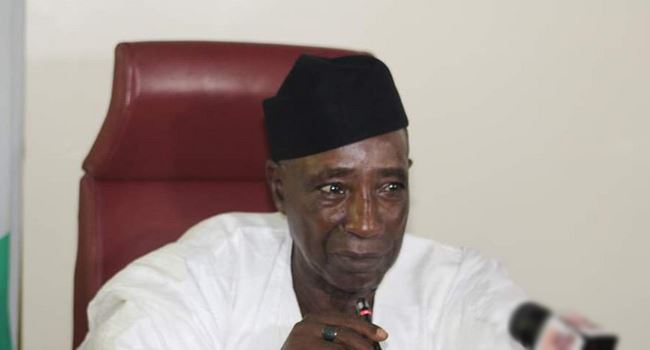Business
Nigerian govt eyes 15,560MT wheat output as annual import bill approaches N1.601tn

The Nigerian government Sunday said it now looked to lift the nation’s wheat production to 15,560 metric tonnes after obtaining wheat breads of varying yield abilities.
Minister of Agriculture and Rural Development Sabo Nanono told a national stakeholder workshop on wheat production in Kano State its ministry had in place strategies aiming at cutting Nigeria’s humongous wheat importation spending and bolstering self-sufficiency.
Africa’s largest country by population, which is home to roughly 200 million people) spends around $4.2 billion (over N1.601 trillion) on wheat production each year, according to Maiduguri-based Lake Chad Research Institute, because local cultivation is grossly inadequate to meet 4.7 million metric tonnes of domestic demand.
Nigeria’s largely agrarian north has been the strongest region in producing the limited output that could be boasted of even though research points to the availability of wheat-friendly soil in the South-South geopolitical zone and some other parts of the country.
Read also: Nigeria’s 2017 rice import bill may exceed $3.5bn despite production claims, experts say
The ministry procured 30MT of breeder seeds which will translate to 1,650MT of foundation seeds; 50MT of foundation seeds which will also translate to 2,500MT of certified seeds,” Nanono said.
“It also procured 326MT of certified wheat seeds which will give 11,410MT of grains in the 2020/2021 season. This effort is expected to result to the addition of 15,560MT of wheat to the national food basket.”
The wheat production expansion would draw strength from uptake of new agricultural technologies and stakeholders’ collaboration and firm up food security, while helping to conserve foreign exchange reserves, said Karima Babangida, director of the Federal Department of Agriculture and representative of the minister at the conference.
He acknowledged various institutional interventions like those of the Central Bank of Nigeria, Flour Milling Association of Nigeria and Transformation for Africa Agricultural Technologies Wheat Compact project in bettering the wheat value chain and developing the subsector.
Join the conversation
Support Ripples Nigeria, hold up solutions journalism
Balanced, fearless journalism driven by data comes at huge financial costs.
As a media platform, we hold leadership accountable and will not trade the right to press freedom and free speech for a piece of cake.
If you like what we do, and are ready to uphold solutions journalism, kindly donate to the Ripples Nigeria cause.
Your support would help to ensure that citizens and institutions continue to have free access to credible and reliable information for societal development.
























